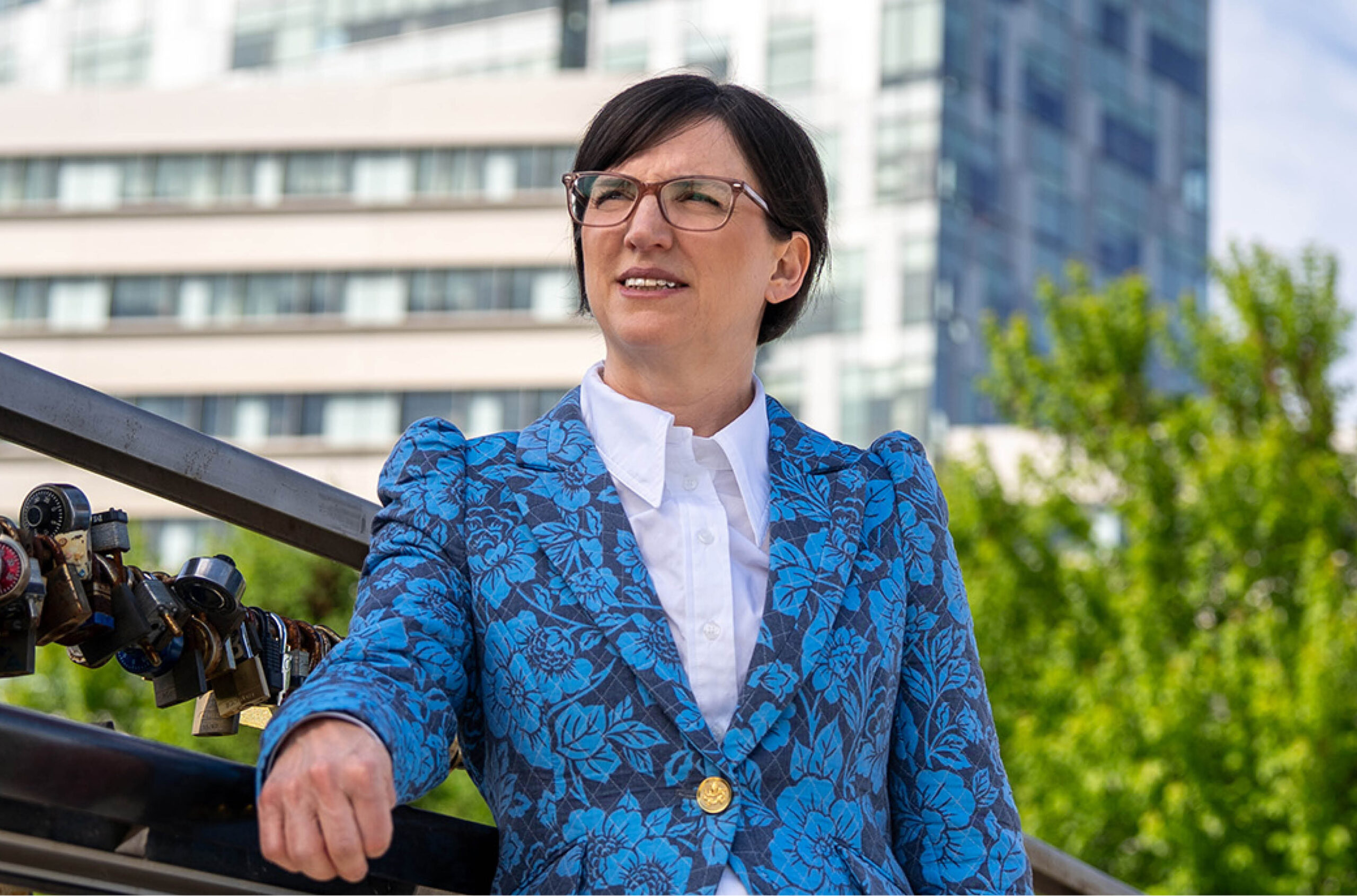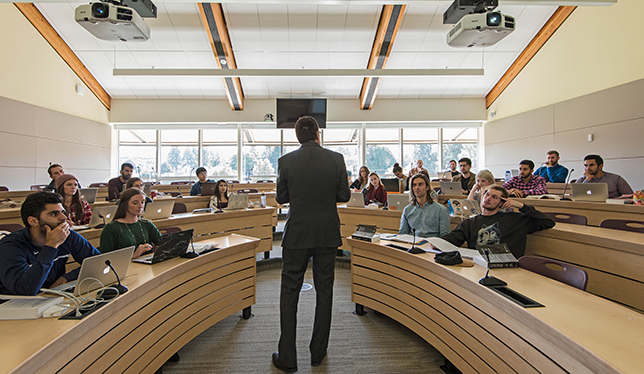Adapting to the campus of the future
Thanks to new technologies it’s never been easier to have an inclusive, hybrid classroom.

March 2020 was a turning point for postsecondary institutions around the world.
As lecture halls sat empty and classes resumed through a screen, centuries-old methods and processes of both teaching and learning were transformed. Now, nearly two years into the pandemic, it’s safe to assume that they may never return to the normal we once knew.
However, despite the challenges that students, educators, and faculty have faced throughout the pandemic, this change might be for the best, if we do it right.
As postsecondary institutions look to what might come next, they sit with a once-in-a-lifetime opportunity to build the flexible, inclusive and innovative classroom of the future. The hybrid model blends the best of both the online and on-campus experiences, enabling flexibility for students’ schedules, increased methods of engagement and an inclusive platform for collaboration.
Here are some strategies to help your institution better adapt to the hybrid learning environment:
Prioritize inclusivity
Before the pandemic, many professors expected students to be in class without exception, clubs and other services were offered exclusively in person, and in order to participate, students had to be on campus. However, through today’s technology, it’s never been easier to enable an inclusive, hybrid campus.
For example, Cisco has added features like AI-powered closed captioning and real-time translation to services like Webex to support each student’s unique needs. Now, learning and collaboration can transcend not just geographic and language barriers, but ability barriers as well.
Adapt your classrooms
In a hybrid model, students who are learning remotely need to feel like they are an equal member of the class, while students who are in-person need to learn in a way that works best for them, as they have been for the last two years.
Implementing cutting edge technology to classrooms, such as Webex’s recently previewed People Focus tool, for example, blends both remote and in-person learning to create an inclusive experience for all. Through machine learning and AI, People Focus individually re-frames meeting participants who are spread across a classroom, providing a close-up view from each person in the room.
Rethink recruitment and retention
Before the pandemic, recruitment and retention in postsecondary institutions often relied on having the latest course offerings, campus amenities, and in-person services. While these in-person experiences and benefits are still important, prospective students’ criteria today is much different. Flexibility in when and how to attend classes, adaptability to unique student requirements, and an experience enabled by innovative end-to-end technology will be crucial in the coming years.
Digitize student services
Students do not simply decide which school to attend based on class offerings. A major element of regular campus life are the ancillary services offered to students. Between club memberships, career counseling or mental health support, it’s important to prioritize these services to ensure that students still have access to them, even in a hybrid campus model.
In fact, the pandemic may have provided an opportunity to make it easier to not only provide these services, but for students to access them. Tools like Webex, can provide students with that face-to-face experience and asynchronous communication, providing access to any service offerings through the click of a button, anywhere and almost anytime.
The future of campus life is here. And it starts with implementing inclusive, flexible and innovative technologies to build the next generation classroom, hyper-focused on student experience.
Learn more about how Cisco can support your institution’s transition to a hybrid model here.
Sarah Reuter is the GM of collaboration at Cisco Canada.




Post a comment
University Affairs moderates all comments according to the following guidelines. If approved, comments generally appear within one business day. We may republish particularly insightful remarks in our print edition or elsewhere.
1 Comments
Rubbish. Realistically, the hybrid learning model has done absolutely NOTHING for education. Except perhaps given students an excuse to submit late assignments, not attend in person lectures and not engage with their learning in a structured and organised way. For shame! To anyone who actually believes this nonsense.